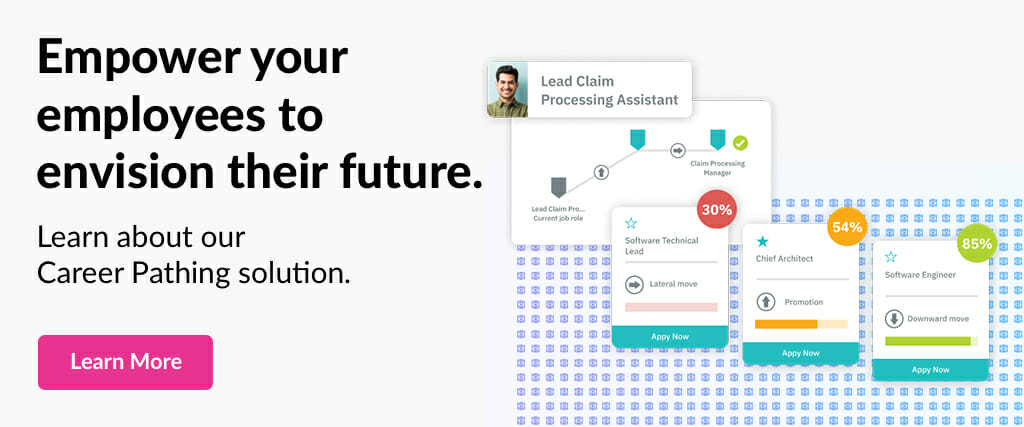6 Things Employees Absolutely Hate About Your Internal Career Development Program

We speak with employers all day long about their internal career development programs or lack thereof. Many companies reveal that their annual employee engagement surveys produce low scores on career development. Why do companies continue to receive low scores when it’s the one thing employees want most?
Research is consistent across the globe. Employees are dissatisfied with their work and employer. They absolutely hate your career development program for six core reasons:
1. You don’t offer career development
Corporations expect employees to manage their own career internally and employees want to be in control of their destiny, but very few people do it properly. We are not taught how to manage a career in school. We don’t learn when we enter the workforce. So, how does it happen? Chance and luck. For most of us, our career simply happens. We don’t develop a strategic map that will get us from point a to c. Instead, we zig zag our way up the corporate ladder, figure out we actually dislike our chosen path, try to change it, fail, and repeat the pattern several times over. All of this happens while we work, which means that employees are not as engaged as they could be.
2. Lacking upward career mobility
Employees leave their jobs because they perceive advancement is the only way to grow. Most organizations offer fewer opportunities for employees to move up the traditional career ladder. Mid-level management positions have been reduced over the years and this trend continues. Outsourcing also played a role in eliminating internal opportunities. For employees with high career aspirations, these issues trigger a reason to exit from their company. Employers need to focus on programs that offer lateral moves and greater focus on new skill development.
3. Being overlooked for a promotion or interesting assignments
Let’s face it, most organizations don’t know the talent they employ. They measure each employee based on their current role and not their collective work experience. So, when it comes time to advancing or moving employees to new roles, it’s simply guesswork. With the right succession management strategy, leaders can determine key roles and identify potential employees across the entire organization who are qualified and ready to fill these roles. Succession planning allows your leadership team to move beyond the sticky-note approach to identifying talent to a formal and objective process that surfaces top talent based on skills and experience instead of the popularity contest.
4. No visibility into future career growth
Employees are looking at careers in new ways. For them, it has become less about ascending methodically from job to job within a single company until the corner office is theirs. Instead of climbing the corporate career ladder — vertical and inflexible — employees are navigating career lattices. Career lattices provide strategic insight into lateral, upward and downward career paths. Employees need access to tools that demonstrate how they can move from one career to the next. They want to know how many skills they lack and how long a typical progression path will take.
5. Limited new skills development
Employee skill development planning is the aspect of talent management that is most neglected in companies. Guiding employees through skill identification, goal tracking, career coaching and employee recognition is the cornerstone of development planning. For many reasons, this valuable activity is often ignored, done improperly or handled as an afterthought during performance appraisals. As a result, employee dissatisfaction fuels many early exits. Organizations must help employees identify minimum skills required by their job and assess those skills against job expectations rather than an arbitrary performance review that has nothing to do with their position. Employers must also be proactive in identifying the learning resources that will enable employees to close skill gaps.
6. Lack of coaching and resources to fill skill gaps
Corporations can do something about this. Give employees the right training and tools to help them understand the knowledge and skills required to manage their career the right way! Corporations need to shift away from simple assessment motivational training sessions because they are short-lived. Employees don’t want a lecture. They want to be shown how they compare to future roles within your company. Help them assess their strengths and gaps to help them achieve their goals and they will “invest” in you for years to come.
If you want employees to love your career development program, you must offer one that focuses on the career lattice, helps them assess skill gaps, provide resources to close those gaps and offer formal and informal coaching to encourage them along their journey. An engaged employee is a happy one.
See a preview of TalentGuard’s platform
Why Raising Salaries Isn’t the Sure Cure for Your Employee Retention Problem
Guest blogging for TalentGuard is author, Eric Chester, on a simple way to boost retention by giving employees a compelling reason to stay. There are limits to the extent an employer will go to keep an employee happy, even when the employee is a top performer or in one of those almost-impossible-to-replace positions. But unless they […]
How Your Organization Can Drive Employee Engagement Through Career Pathing
When it comes to employee engagement, it’s seriously lacking in many organizations. A recent Gallup survey showed that 70% of U.S. workers are not engaged in their jobs. And the problem is not getting better. How can companies give employees the career options they need to effectively manage their careers and stay motivated in their […]
Why Managers Need to Be Career Coaches
If you’re a manager trying to improve the engagement and development of your employees, career coaching is one of the best ways to make a lasting difference, not only for the employee and their career development but for the positive business value delivered to your organization as well. Research conducted by Bersin by Deloitte showed […]





